In Orlando, a son of a Muslim immigrant rushed to heal pain caused by another
Ibrahim spent hours repairing gunshot wounds in the bodies of victims of Orlando shooting
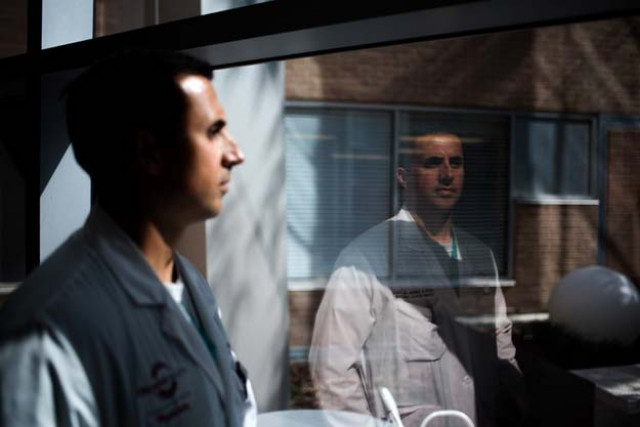
Dr Joseph Ibrahim, a trauma surgeon and the son of an Egyptian immigrant, worked for hours to save people wounded in the Pulse nightclub attack. Photo credit Hilary Swift for The New York Times
Please, he thought, don’t let Ibrahim appear anywhere in the gunman’s name.
Dr Ibrahim — who heads the trauma unit at Orlando Regional Medical Center, and generally goes by Joey — had already spent hours repairing gunshot wounds in the bodies of Latino men and women, many of whom were the sons and daughters of immigrants, too.
My father knew Islam is about peace, Muhammad Ali’s daughter says post-Orlando attack
Yanked from bed by a phone call at 2:15 am, he was doing what he had trained for. His old friends from his hometown in Tennessee were pulling for him. But it was hard to escape the pairing: the son of one Muslim immigrant from the Middle East trying to save the lives of mostly gay Latinos whom another son of Muslim immigrants tried to kill — all in a chunk of verdant Florida built on Disney joy.
“Maybe we’re a target because of our diversity and tolerance,” Dr Ibrahim said after a morning of surgery on Wednesday. “Here you constantly see people from all over the world, and it’s wonderful.”
This is the Orlando that the shooting tore right through, a place that sees itself as a model of diversity, at ease with difference, with room for everyone and every ride. Even now, as the conversation outside Orlando zeros in on “radical Islam,” this city is awash in American flags, vigils with Republican and Democratic politicians trying to speak Spanish, and signs on churches, strip clubs, and restaurants with two catchphrases: “Orlando Strong” and “Orlando United.”
It is hardly a perfect union, one without pain, or frustration. Some Latinos have wondered why the shooting that left 49 people dead has become a gay-rights touchstone and not a Latino one. Some immigrants with loved ones among the dead have collapsed in the arms of local leaders, desperate for financial help, wishing for more of the support found in the larger Puerto Rican community.
There is some confusion too; many countries in the hemisphere are still trying to figure out if any of their citizens were killed, a challenge since many of the victims had United States citizenship even if they were originally from somewhere else.
Dalai Lama says must not see all Muslims as terrorists after Orlando
But all of these issues — the intersecting identities, the struggles for recognition — only make more obvious just how much this most American of places has rapidly changed.
Walt Disney had the vision to cobble together a resort with secret land deals in a quiet cow town of lakes and mosquitoes. Now, Orlando and its suburbs in Orange County point to where this country is headed when it comes to demographics, and the degree to which immigrants and their offspring are woven into every aspect of American life.
What Orlando looks like today is what the United States will look like in 30 years — that is what local Republican Party officials tell newcomers. In simple terms, the white non-Hispanic population is shrinking (it is now at 43 per cent in Orange County) and cultural and ethnic diversity is expanding and evolving as foreigners, new arrivals from Puerto Rico, and the children of earlier immigrant waves all find their footing in Orlando’s affordable sprawl.
At Valencia College, more than two-thirds of the 80,000-strong student body is nonwhite. On Wednesday, black and Latino students with the school’s Gay-Straight Alliance — including Jorge Lanza, 23, a son of immigrants from Honduras who goes by George — gave out free hugs and candy near the library; seven of the people killed at Pulse were current or former Valencia students.
Most of them had not been here for long, which is typical. Nearly two-thirds of the 1.3 million people in Orange County arrived post-Epcot Center, which opened in 1982.
“I happen to have been born about 1,000 yards that way, but there is not a large population in Orlando that are third-generation residents,” said Mayor Buddy Dyer of Orlando, a Democrat, standing near the Pulse nightclub.
Orlando gunman went on Umrah pilgrimage
Teresa Jacobs, the mayor of Orange County, who is a Republican, said that newness, along with the lack of a single dominant group — plus nonpartisan elections — have pushed Orlando toward tolerance.
“We have to get along,” Ms Jacobs said.
The shooting shattered the area’s image as a welcoming place. It is why at the public memorials here, many residents said the attack had been particularly hard for people to accept.
And yet, immigrants and the children of immigrants, from the Caribbean and beyond, played a role at every stage of the tragedy.
The gunman, Omar Mateen, was a first-generation American. His parents, who got married in New York in the early 1980s and briefly lived in Flushing, Queens, before moving to Florida, were quick to assimilate after moving from Afghanistan.
His first wife, Sitora Yusufiy, was from Uzbekistan. His second wife, Noor Zahi Salman, was born in California to Palestinian parents from the West Bank.
Many of the people Mr Mateen killed had similar stories of hyphenated existence.
Jerald Arthur Wright, 31, whose family was from Colombia, worked at Walt Disney World, and never seemed to run out of energy, helping guests in both Spanish and English.
Luis S Vielma, 22; Juan Chevez-Martínez, 25; Joel Rayón Paniagua, 31 — they were all immigrants from Mexico, working mostly in tourism, too. If you visited the Wizarding World of Harry Potter at Universal Studios, you might have seen Mr Vielma.
Among those who survived and saw their friends die or be wounded, there are even more — including Adrian López. An immigrant from Cuba, he stood up before Orlando’s Hispanic Chamber of Commerce on Wednesday night and through tears, after apologizing for his rusty Spanish, told his heroic tale of escaping the shooting, then running back in to try to save his husband, who was wounded.
The police SWAT team that killed Mr Mateen also included at least two Latino officers. The Orlando Police Department is about 18 percent Hispanic and includes officers “from just about every Latin American country and other parts of the world,” said Deputy Police Chief Orlando Rolon.
Orlando shooter was regular at gay nightclub he rampaged
Then there is the Orlando Regional Medical Center, the tall modern hospital a few blocks from Pulse.
Dr Ibrahim, who is 39 and speaks with a drip of Tennessee drawl, said that as he worked on victim after victim early Sunday morning, he was surrounded (as usual) by colleagues with ties to other parts of the world — nurses of Asian and Hispanic descent, technicians from Jamaica, and members of the lesbian, gay, bisexual and transgender community.
“We worked side by side, without question,” he said.
In the days that followed, he said, he heard many arguments for “taking the country back” and keeping out Muslims. It was mostly on talk radio, as he drove to work for surgery. And while the hosts focused on Mr Mateen’s father, Dr Ibrahim contemplated his own dad, an immigrant from Egypt, who married an American and practiced medicine in Tennessee.
“It’s difficult,” Dr Ibrahim said, noting that he would not be here if that kind of policy had been in place when his father wanted to leave Cairo. “I just have to believe that those people have not met the right individual. There are a lot of people who never meet Muslims who are kind, gentle and giving.”
Stephen Miller, a policy adviser to Donald J Trump, said Mr Trump — who has spent months condemning immigrants from Mexico and the Muslim world — simply wants to “select immigrants who support, defend and uphold our values.”
Mr Miller described Mr Trump’s proposal to stop all immigration from Muslim countries until a broad security assessment could be put in place as “about as mainstream and common sense as it gets.”
But Dr Ibrahim said what he heard was mostly an appeal to ignorance and fear. He said he moved to Orlando from Tennessee in part so his twin boys, who are 11, could grow up around different kinds of people. Like their father, whose looks make him hard to place in terms of ethnicity, they represent a mixture of cultures: Their mother is white, Anglo in the lexicon of Orlando, born and raised in Tennessee.
Muslim Elders condemn 'repugnant' Orlando shootings
But as a family with Ibrahim for a last name, they are still sometimes seen as outsiders. Dr Ibrahim said his wife was once denied a loan because her name was confused with someone on a European terror watch list.
He and his wife also struggled with whether to continue the tradition, common in the Middle East, of passing on his second name, Abdellatif, to their oldest son. In the end, they went for it: Abdellatif now links grandfather, father and son, three generations of Egyptian-Americans.
Dr Ibrahim is hoping that he won’t regret it. “Hopefully by the time he’s of age,” he said, “people will be even more tolerant.”
This article originally appeared on The New York Times, a partner of The Express Tribune.


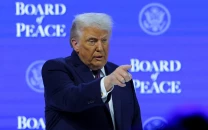
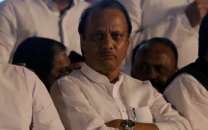
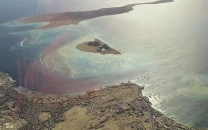
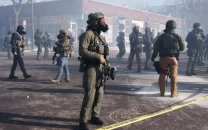
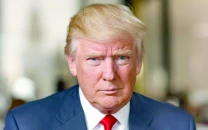












COMMENTS
Comments are moderated and generally will be posted if they are on-topic and not abusive.
For more information, please see our Comments FAQ